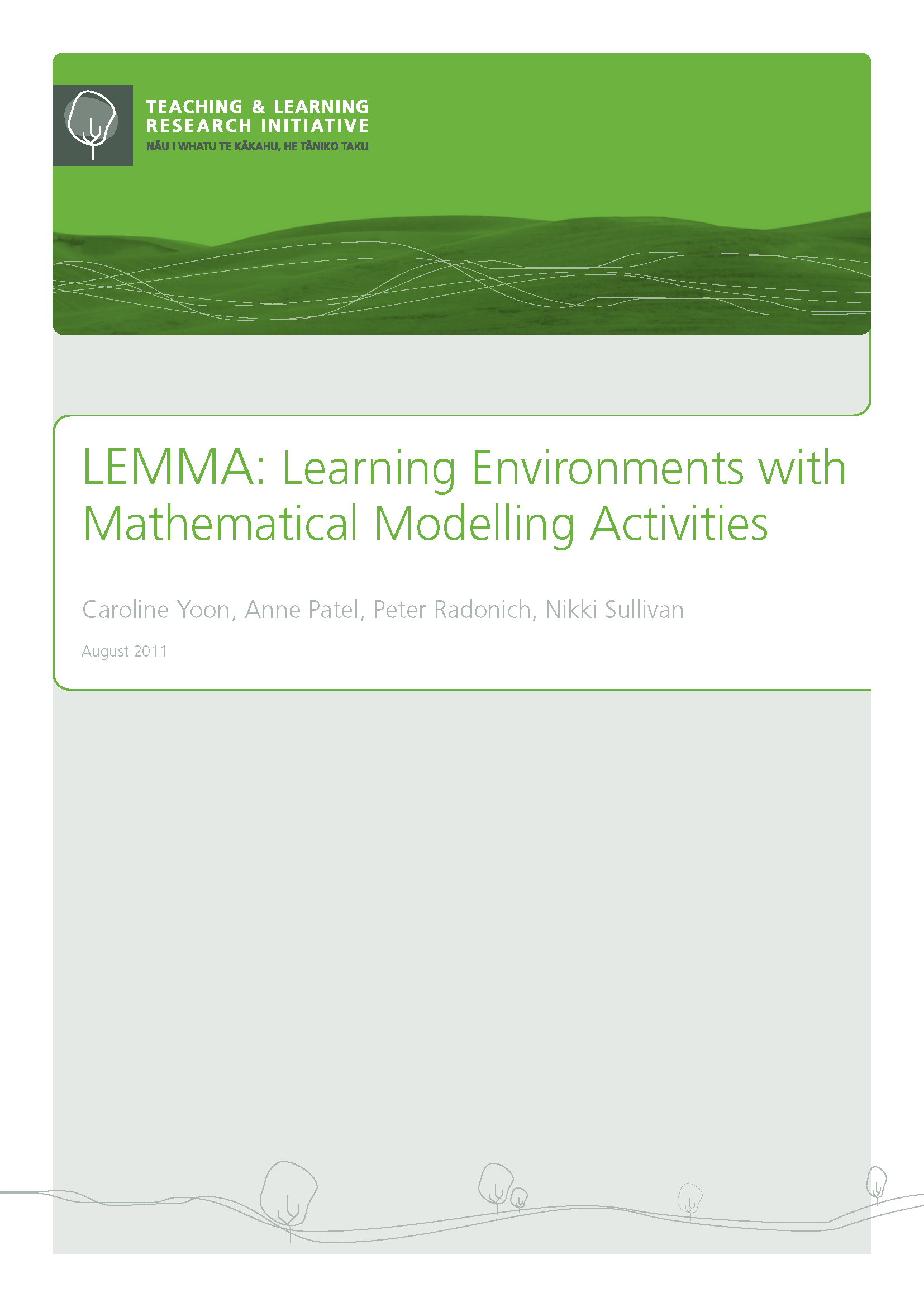
LEMMA: Learning Environments with Mathematical Modelling Activities
Introduction The LEMMA project—Learning Environments with Mathematics Modelling Activities—grew out of a concern that many of our mathematics students struggle to use mathematical concepts flexibly to solve problems in the real world. The LEMMA project designed learning environments that encourage students to develop sophisticated conceptual understandings and communication competencies through mathematical modelling activities. Like a lemma in mathematics, LEMMA is not a grand theorem or solution, but merely “a stepping stone to a larger result” (Wikipedia, 2009)—the desired result being improved mathematical competencies among New Zealand secondary school students. Key findings Rich mathematical modelling activities such as model eliciting activities (MEAs) (Lesh, Hoover, Hole, Kelly, & Post, 2000) can elicit a

